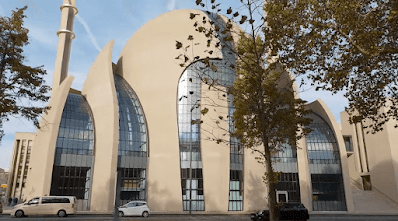After much debate, the German administration and Turkey have settled on a schedule to cease the practice of sending imams to Germany.
In the not-too-distant future, the German government hopes to cease the practice of receiving imams from Turkey. According to an announcement made Thursday in Berlin by the Federal Ministry of the Interior, this has been agreed upon with the Turkish religious body Diyanet and the mosque association of the Turkish-Islamic Union of the Institute for Religion (Ditib).
As a result, imams educated in Germany will progressively supplant the about 1,000 Diyanet preachers now employed in Germany over the course of the following few years.
Dahlem (North Rhine-Westphalia) is home to the current Ditib training program, and the training will also take place via an extra program. The Islamkolleg Deutschland (IKD) in Osnabrück should be partnered with for this aim.
In 2024, Ditib should take up the technical responsibilities formerly held by the Turkish general consulates in order to counteract foreign influence on the sermons spoken in German mosques before the deployment of imams comes to a close.
It is the policy of the federal government to encourage the education of more domestic imams. German language instruction, Islamic religious teachings, and a grounding in German history, sociopolitical concerns, and values should make up the three corners of this curriculum, which is offered to students who have completed Islamic theology courses.
The Federal Interior Minister, Nancy Faeser (SPD), expressed her pleasure at finally reaching an agreement with Turkey, after lengthy talks, to stop the deployment of state-employed imams from that country.
She stressed the need of imams participating in interfaith discourse and addressing societal religious questions:
Preachers, who are often deployed for four years as Turkish state officials, obey orders from Ankara and typically only have a partial understanding of German culture, which has made the posting problematic for years.
Imams from Diyanet mostly serve at mosques in the Ditib district. A handful of them, according to federal data, are preachers in the communities of two groups mentioned in the most recent annual report of the Federal Office for the Protection of the Constitution: Milli Görüs and the Union of Turkish-Islamic Cultural Associations in Europe (ATIB).
Source: DPA/KNA/TAGESSPIEGEL








+ There are no comments
Add yours